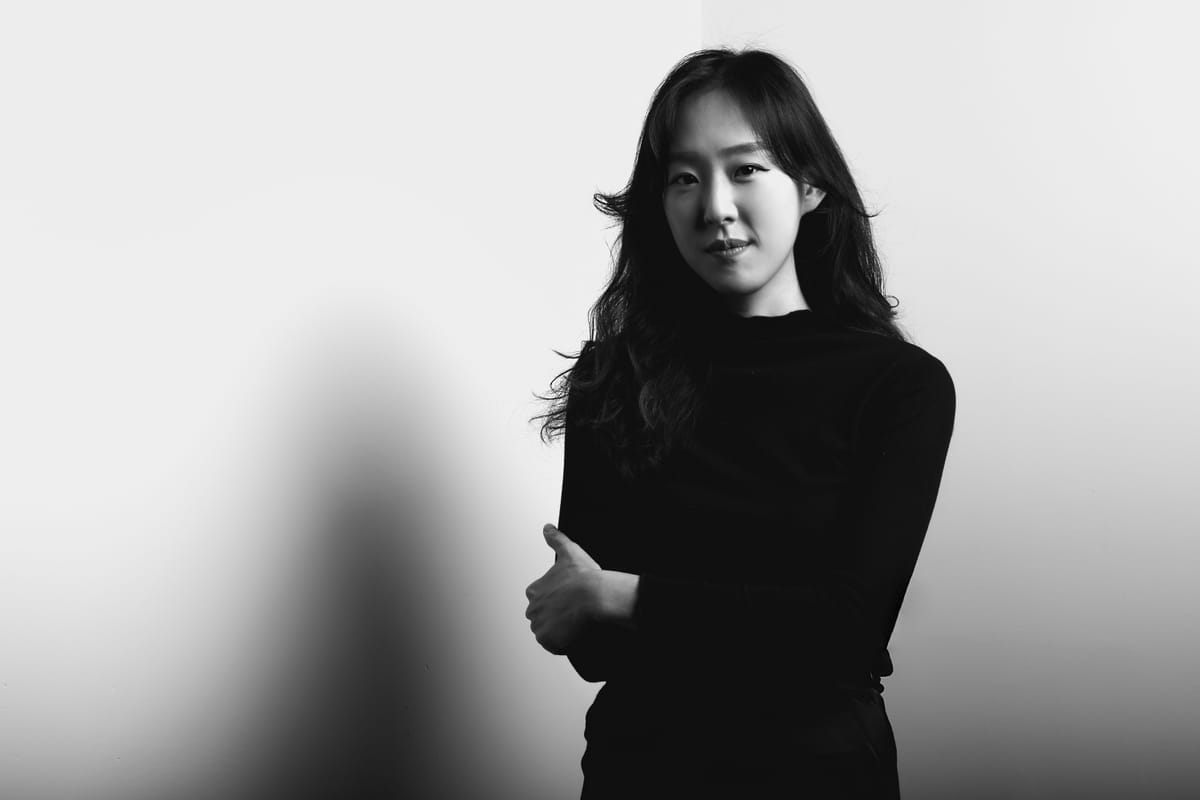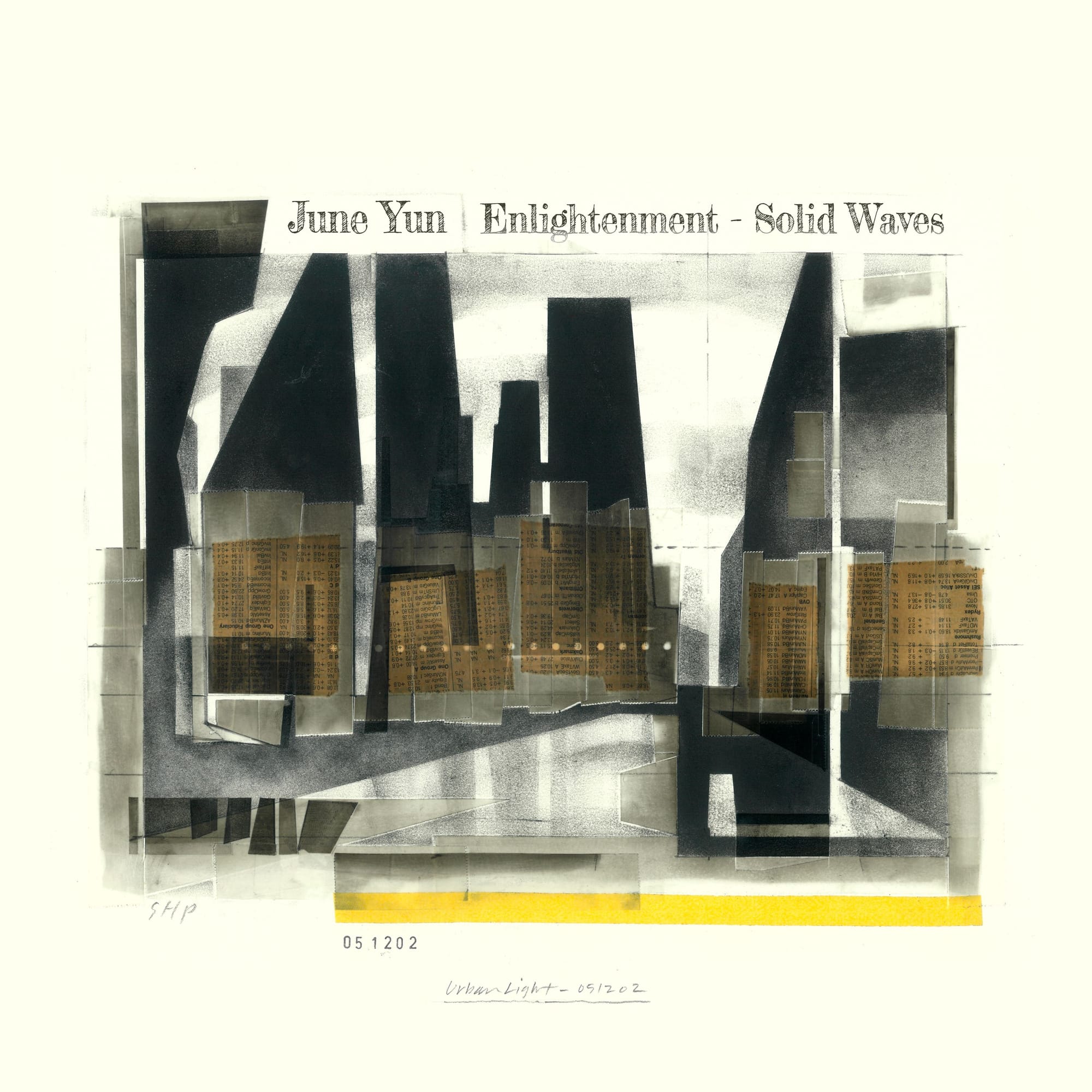June Yun: navigating jazz's depths to find her voice

When practicing self-discovery, it is important to recognize that nothing remains static: the person you once were no longer exists, and the person you are today will likely change. Paradoxically, on this path of self-definition, the act of illuminating your true self reveals the shadows inherent in the light.

Art appreciation often emphasizes the hours of execution, yet the true essence lies in moments of introspection where creation originates. Composer June Yun exemplifies this with her latest album, Enlightenment - Solid Waves. Reflecting on her process, she recalls, "In 2017, I went to New York to find my voice in jazz and vocal singing." Amidst the streets of the Big City, she discovered that jazz was just the beginning of her journey. "The New York jazz scene introduced me to a modern sound, different from traditional swing. I started to love this style and began composing music in that vein. However, I struggled with finding my originality and voice. I realized I needed to understand myself to create original music. Reflecting on my childhood experiences, including feelings of discrimination and loneliness, helped me understand my emotions and how they shaped me."
June's life parallels that of ancient nomads: born in South Korea, she spent her childhood in London and pursued her studies in New York, where she realized the importance of understanding her essence. "In today's fast-paced society, emotions often pass without full comprehension. Exploring these feelings was essential for deeper self-knowledge. My journey of self-discovery involved revisiting my past as an Asian woman navigating through stereotypical expectations: listen more, speak less, suppress emotions, and maintain elegance."
For Yun, this encounter with reality can be summed up in a single word: jazz. "Jazz is a music of study and enjoyment. You have to study it deeply to approach it. If you enjoy that process, jazz is a great tool for self-discovery, which is what it did for me," she explains. "I never knew I would be able to understand myself this well. I still have a lot to learn, but without jazz, I don't think I could have reached this level of self-awareness. Jazz is a spirit and a language that guides you. My music has many jazz elements that blend with other genres; it is a complete creative and artistic expression of myself, with jazz being the biggest part of it. Jazz made me realize something significant in my life. It's an ongoing process of continuous study and self-discovery."
After finding her inner voice, emotions ceased to exist at the abstract level and became integral to her compositions, in which light and darkness coexist along the tracks. "Light and dark fascinate me because people's feelings towards these elements vary." June understands that even in the absence of light there are many shades of black. "For instance, colors like pink evoke different emotions and memories for everyone. I saw light and dark as metaphors for feelings. Happiness can be universal, but the experience of it is unique to each person. Light and dark have different meanings: light can symbolize positivity or spirituality, while dark isn't necessarily negative. Some people prefer darkness over brightness." This interplay of light and dark with emotions became the central concept of her album.
In this palette, some elements stand out as bright colors —and without them— the album would have taken another direction. "I'm always attached to melodies and improvising." June is convinced that if people listen closely, they will capture the emotions and concepts conveyed through her music. "I always compose with the piano, which explains why my music usually doesn't have many lyrics. I want to express myself without unnecessary ornamentation. I want my music to be very organic, reflecting who I am. Just like in a relationship where you are genuine, I don't want any fakeness in my creation. The lyrics I write are only there when I feel they are necessary. I want to express myself in a way that shows you don't always need lyrics to convey emotions."
Self-discovery goes beyond sitting in front of the piano and composing; it transcends the walls of the recording studio where the final work is captured. It is a constant and necessary process to step into the scenario. "One important thing in music is to know what kind of statement you want to make and understand what you can offer in that space," she asserts. "The second aspect is the people around you. You're not alone in this; you have to listen. Even if you're alone on stage improvising, people are listening. The whole space, the atmosphere, matters. Improvising isn't just about playing a tune or singing a melody over it. It's about being rooted in that space and presenting yourself in a true, honest way with all your abilities, making the space around you come alive."
Look at you transparently, and learn to like yourself. Knowing yourself better helps you recognize who you are, what you want to be, and how you want to change or stay the same.
Confronting the past is a demanding exercise that must aim for evolution. Art remains the representation of divinity in reality. "The album is filled with positivity and resilience. Many people are searching for themselves, trying to find their voice, just as I have been and continue to do. Through this music, I want to say there's always a way forward. There are good people around you, and even during dark and hopeless times, there's meaning behind it all—it's there to help you grow, to encourage positivity, happiness, and a fulfilling life."
Across nine songs, June Yun invites us to explore introspection and the shades of life that lead to deeper authenticity. As her voice navigates through both brightness and darkness, the emotions reflect the profound journey she undertook when composing and improvising through jazz. Her sound is unequivocal proof that nothing remains static.